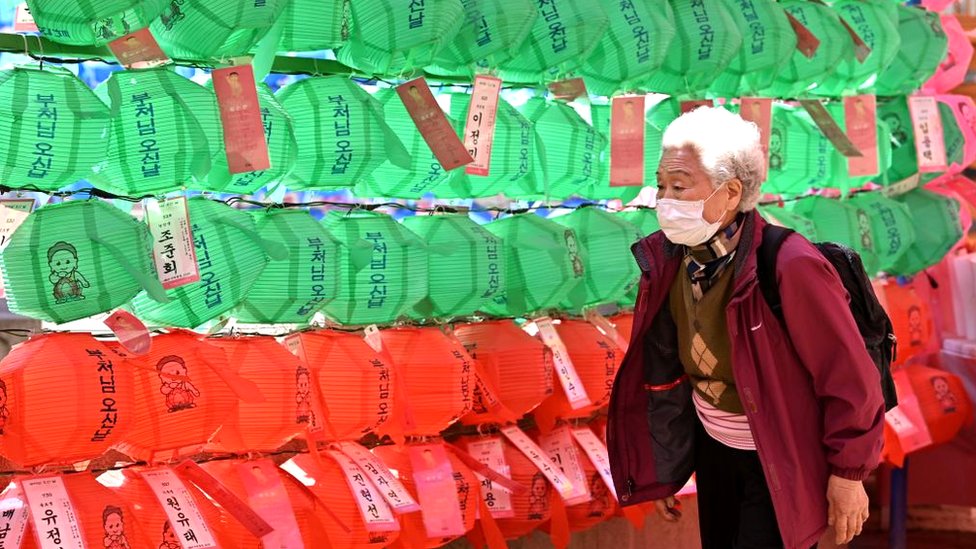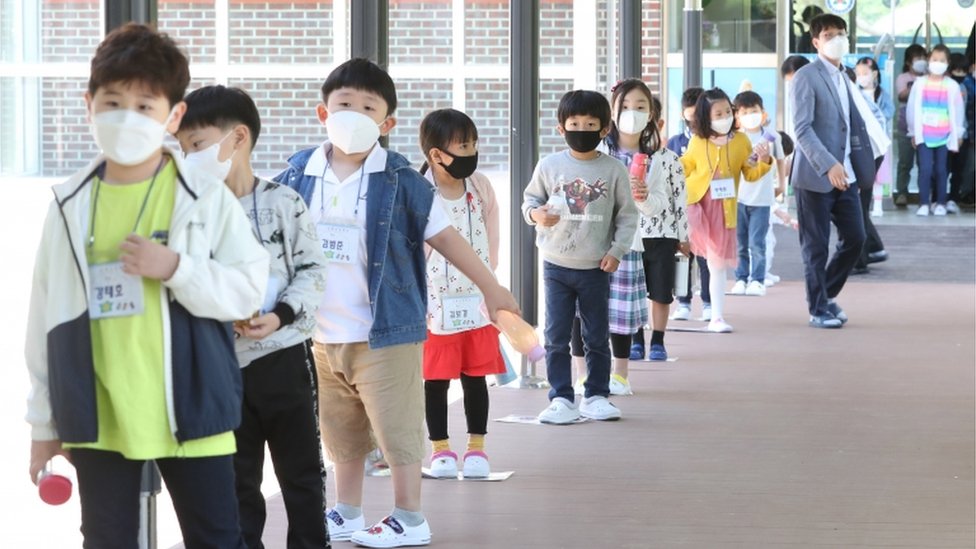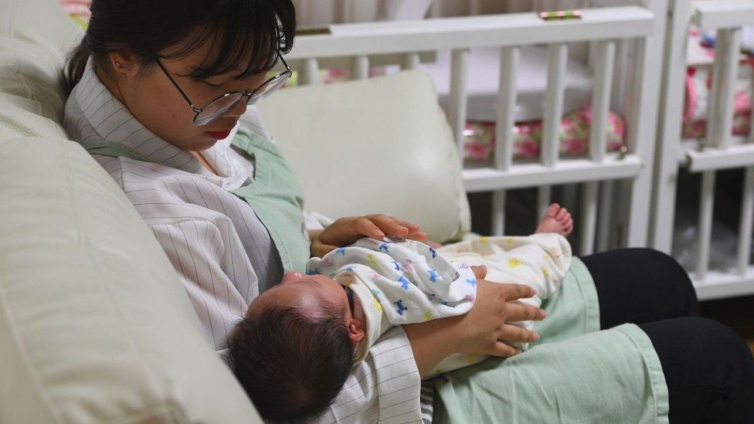South Korea recorded more deaths than births in 2020 for the first time ever, raising fresh alarm in the country which already has the world's lowest birth rate.
Only 275,800 babies were born last year, down 10% from 2019. Around 307,764 people died.
The figures prompted the interior ministry to call for "fundamental changes" to its policies. A declining population puts immense strain on a country.
Apart from increased pressure on public spending as demand for healthcare systems and pensions rise, a declining youth population also leads to labour shortages that have a direct impact on the economy.

Last month, President Moon Jae-in launched several policies aimed at addressing the low birth rate, including cash incentives for families.
Under the scheme, from 2022, every child born will receive a cash bonus of 2 million won ($1,850; £1,350) to help cover prenatal expenses, on top of a monthly payout of 300,000 won handed out until the baby turns one. The incentive will increase to 500,000 won every month from 2025.
What's behind South Korea's falling birth rate?

Largely, it's because in South Korea, women struggle to achieve a balance between work and other life demands.
Hyun-yu Kim is one of them. The oldest of four, she dreamed of having a big family of her own. But faced with conditions that are not family friendly in South Korea, she is reconsidering her plans to have children.
She recently accepted a new job and had felt anxious about taking time off for maternity leave. "People tell me that it's safer to build my career first," she told the BBC.
Soaring real estate prices are another major issue. Ms Kim points out that rapidly rising property prices also discourage young couples.
"In order to have children, you need to have your own home. But this has become an impossible dream in Korea."
She is also unconvinced by the incentives being offered by the government.
"It's expensive to raise a child. The government providing an extra couple hundred thousand won won't solve our problems."
Latest Stories
-
CLOGSAG vows to resist partisan appointments in Civil, Local Government Service
49 minutes -
Peasant Farmers Association welcomes Mahama’s move to rename Agric Ministry
51 minutes -
NDC grateful to chiefs, people of Bono Region -Asiedu Nketia
53 minutes -
Ban on smoking in public: FDA engages food service establishments on compliance
54 minutes -
Mahama’s administration to consider opening Ghana’s Mission in Budapest
55 minutes -
GEPA commits to building robust systems that empower MSMEs
58 minutes -
Twifo Atti-Morkwa poultry farmers in distress due to high cost of feed
1 hour -
Central Region PURC assures residents of constant water, power supply during yuletide
1 hour -
Election victory not licence to misbehave – Police to youth
1 hour -
GPL 2024/2025: Nations thrash struggling Legon Cities
1 hour -
Electoral offences have no expiry date, accountability is inevitable – Fifi Kwetey
1 hour -
Ghanaians to enjoy reliable electricity this Christmas – ECG promises
1 hour -
Police deny reports of election-related violence in Nsawam Adoagyiri
1 hour -
‘We’re not brothers; we’ll show you where power lies’ – Dafeamekpor to Afenyo-Markin
1 hour -
EPA says lead-based paints are dangerous to health, calls for safer alternatives
3 hours

